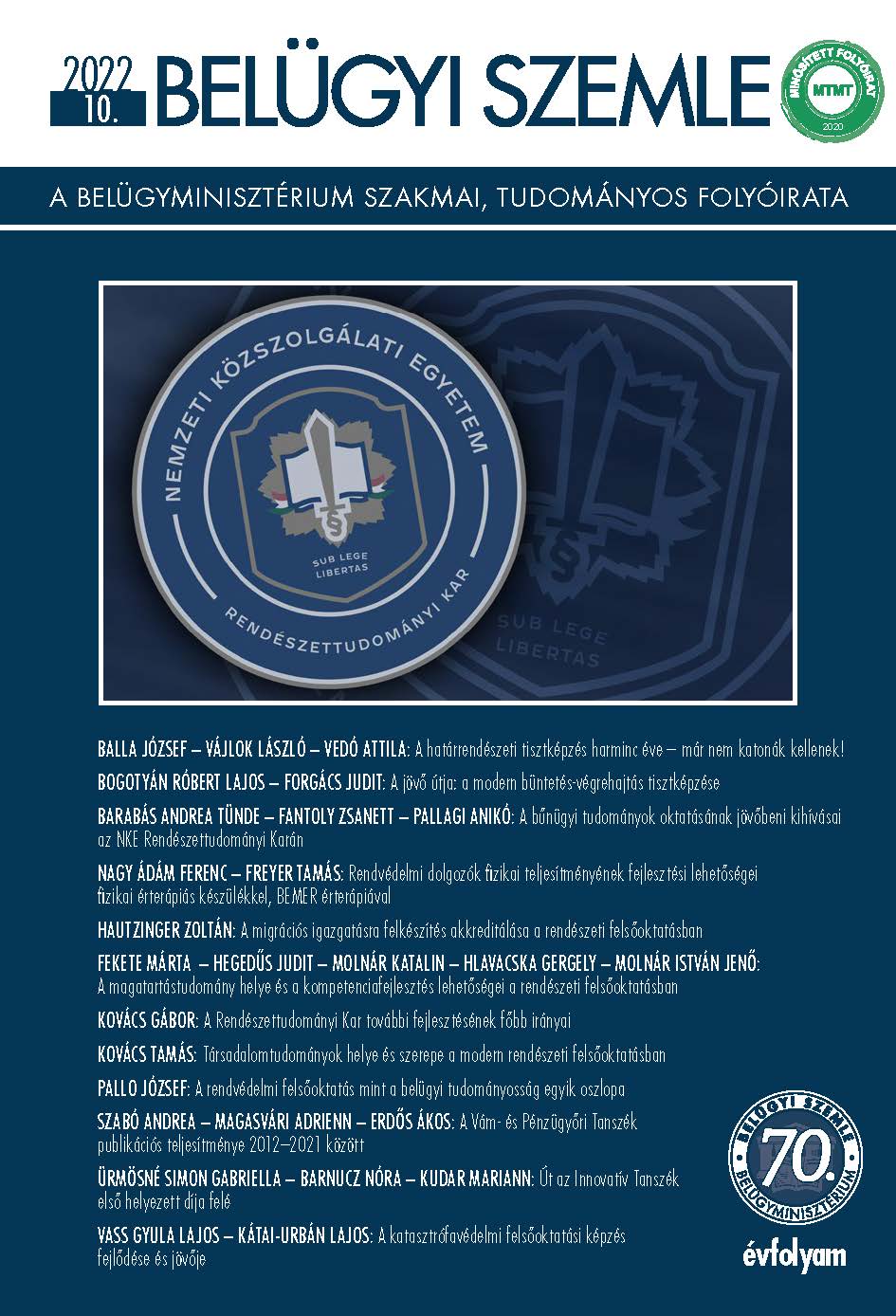Abstract
Aim: Over the past 50 years, the system of the training of prison officers in higher education has proven that the complex curriculum system created as a result of the continuous modernisation – complemented by a wide range of practical knowledge – promotes career orientation and develops a strong attachment to the profession of the prison service and organisation. Following the historical development of the Department, the authors give a description about the possible directions for further development.
Methodology: In the research, the authors reviewed the articles about the training of prison officers in higher education and studied the available statistical data on the structure of the subjects and the age characteristics of students.
Findings: One of the most important demands in the training of prison officers in higher education is that it is required to support the efforts of the practice in the curriculum scheme and the training structure. It is also expected that the prison officer training should work as a scientific workshop assisting the professional development of prison service responding sensitively to its
changes. It should have a kind of synthesizing approach based on scientific background, which supports the cooperation of the practical and theoretical representatives. In addition to the professional embeddedness of the prison service in higher education, there are external factors like the economic, social and political conditions and in parallel with these, the professional and legal policy expectations, which can cause significant changes, even shifts in emphasis in the structure and the training content. This is complemented by the set of the standards what the Higher Education Act contains.
Value: In relation to the results, the article summarizes the modernisation efforts of the Department and the University, which are closely aligned with the key competences required by the law enforcement agencies taking into account the generational challenges of the students as well.

